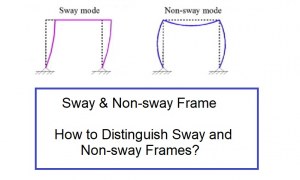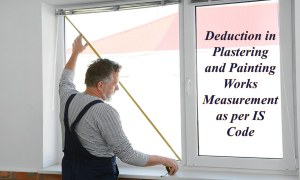🕑 Reading time: 1 minute
The selection of mortar influences the quality of the construction process and the final masonry product. A better understanding of materials used in masonry construction, the process, and the final product is essential for choosing the right mortar.
This article explains some of the important points to consider while selecting the right mortar for masonry construction. The guidelines are mentioned as per ASTM standards.
Contents:
Choosing the Right Mortar
The mortar selected for masonry construction must:
- Facilitate proper placement of the masonry units
- Contribute to the serviceability of the masonry
- Provide required structural performance
- Provide desired appearance
The type and material of mortar are selected by considering the requirements mentioned above.
The members of the construction team may have different perspectives on these concepts and the importance of different materials. In case the engineer focuses on the mortar selection, the architect may give importance to the appearance of the masonry, while the mason contractor could be concerned about how workable the product is to bring maximum productivity.
However, the owner, far from everyone, may have a demand for a quality-based and budget-friendly project. But altogether, a balanced perspective must be followed during the selection of the mortar. A general idea to follow while selecting mortar for masonry works are:
- A single mortar type is not the best choice for all applications.
- A single mortar type cannot provide the highest performance in all applications.
- A single mortar type alone cannot define the quality of the mortar.
Types of Mortar as per ASTM C270
The ASTM standards have provided some specifications and recommendations that can be followed for identifying the materials and products. The "ASTM C270- Standard Specification for Mortar for Unit Masonry" must be referred to obtain the project specifications.
As per ASTM C270, there are mainly five types of mortar that are standardized to meet a variety of masonry applications. They are:
- Type N
- Type S
- Type M
- Type O
- Type K
1.Type N Mortar
Type N mortar is a medium-strength mortar with a 28-day compressive strength value of 750 psi. It is used for exterior walls and above-grade walls, which are exposed to severe weather conditions. The Type N mortar mix is made from 1 part Portland cement, 1 part lime, and 6 parts sand.
Type N mortar mix is commonly considered a general-purpose mortar mix that can be used for above-grade, exterior, and interior load-bearing installation works. It is also used as a mortar mix for soft stone masonry.
2. Type S Mortar Mix
Type S mortar is a choice of project at or below-grade. They provide an overall compressive strength of 1800 psi with higher tensile and bonding strength. The mix is made for strength ranging from 2300 to 3000 psi. It has a higher ability to withstand soil pressure and dynamic loads like wind and earthquakes. It also has a higher resistance to freeze and thaw.
Below-grade applications like construction of retaining walls, sewers, manholes, masonry foundations, and at grade structures like walkways, brick patios make use of type S mortar mix.
3. Type M Mortar Mix
Type M mortar mix is the highest strength mortar mix with the highest amount of Portland cement. The mix is recommended for heavy loads and below-grade applications. The different areas of construction where the Type M mortar mix is employed are retaining walls, driveways, and foundations.
It is less workable compared to other mortar types and has less adhesion and sealing properties. This is hence not suitable for exposed applications but is a good choice for natural stone applications.
4. Type O Mortar Mix
Type O mortar mix provides a lower compressive strength of around 350 psi. Its application is more relevant for interior and low structural applications. It is not a good choice for places with high winds. The consistency and ease of applying type O mortar mix make it suitable for pointing work and repairing existing structures.
5. Type K Mortar Mix
It is a rare mortar mix used in construction, mainly limited to restoration or unique specifications. It has a low compressive strength value of 75 psi. It has a soft texture, which is a good choice for restoring masonry of historical or ancient buildings.
FAQs
As per ASTM C270, there are mainly four types of mortar that are standardized to meet a variety of masonry applications. They are:
1. Type N
2. Type S
3. Type M
4. Type O
5. Type K
Type N mortar is a medium-strength mortar with a 28-day compressive strength value of 750 psi. It is used for exterior walls and above-grade walls, which are exposed to severe weather conditions. The Type N mortar mix is made from one part Portland cement, one part lime, and six parts sand.
Type N mortar mix is commonly considered a general-purpose mortar mix that can be used for above-grade, exterior, and interior load-bearing installation works. It is also used as a mortar mix for soft stone masonry.
Read More
Types of Mortar as Binding Material
How to calculate the quantity of water for a given concrete mix?



